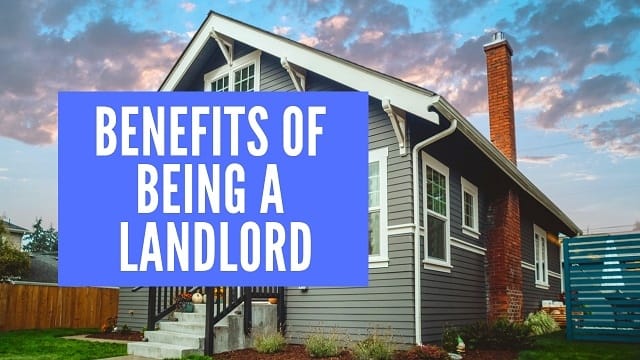If you happen to have a certain piece of property that you don’t happen to use regularly, then you may have considered becoming a Landlord. This can be a sound financial move for many people, especially when you consider just how much potential for revenue there is. However, aside from being another income source, being a landlord can also offer a variety of other benefits. Because of that, if you’re on the fence about whether or not you want to be a landlord, then these may convince you that you should.
Tax Benefits For Rental Properties
In the majority of states, there are a variety of laws that have been introduced that benefit landlords; many of these even go back decades. With that in mind, there are a few different legal benefits to renting out your property; chief among these are Rental Property Tax Deductions, which can have a significant impact on just how much tax you have to pay every year. Having said that, there are a few different tax deductions that a landlord can get, as long as they meet certain criteria. The first of these is interest on any loans of mortgages that you had to take out to buy or repair a rental property; as such it could end up being one of the largest tax deductions you get.
Depreciation is another significant tax deduction that a landlord can make; this is where a landlord deducts the purchase price of the rental property from their taxes. However, this can’t be done in bulk and must be done over a period of twenty-seven and a half years. This could still end up being a significant saving on your taxes. Repairs are an obvious tax deduction you can be eligible for, as this can be seen as a business expense. Landlords may also be eligible for travel or home-office deductions if they meet certain criteria and their use is about the renting of your property. There may also be other tax breaks available to you depending on which state you live in. Because of that, you may need to check with a local tax expert to see what you may or may not be eligible for.
Long Term Security
While the rental income aspect of renting a residential property is obvious, something related to this is the long-term security that comes with renting. This is because, once you’ve paid off the mortgage or any other loans related to the house, you’ll have an asset that works for you long term. After all, you’re not going to stop earning from renting out your property unless you choose to. Because of that, it can be one of the most secure ways of earning an income that you could do.
This could mean that it’s one of the best investments you could make in regards to your retirement. This is because renting it out as early as possible means that you may be able to completely pay off the mortgage before retiring. Once that’s done then you’ll have very few expenses while also having a significant income to retire on. Furthermore, there’s also the obvious choice of selling off a piece of property when you retire if you’d prefer to have a bulk payment. This can be especially handy if you plan on retiring abroad and purchase a house there. However, the rental income from a property can also provide a significant amount to retire on abroad and can be more than enough to live on in certain countries. With that in mind, investing in real estate at a young age can end up paying off.
Flexibility
Being a landlord is a lot like running a business, and because of that you can be rewarding. One of the chief aspects of this is how flexible it can be when you’re a landlord or business owner. You get to set the terms and conditions of a contract as well as a variety of other things. You’re also somewhat in charge of costs, revenue and many other aspects of the arrangement. Very few other roles offer this kind of flexibility.
With each of those benefits, what’s stopping you from becoming a landlord? While there are some drawbacks, the pros definitely far outweigh the cons and can provide a lot more long-term benefits than they would negatives. Because of that, it can be one of the most secure ways of earning an income.

